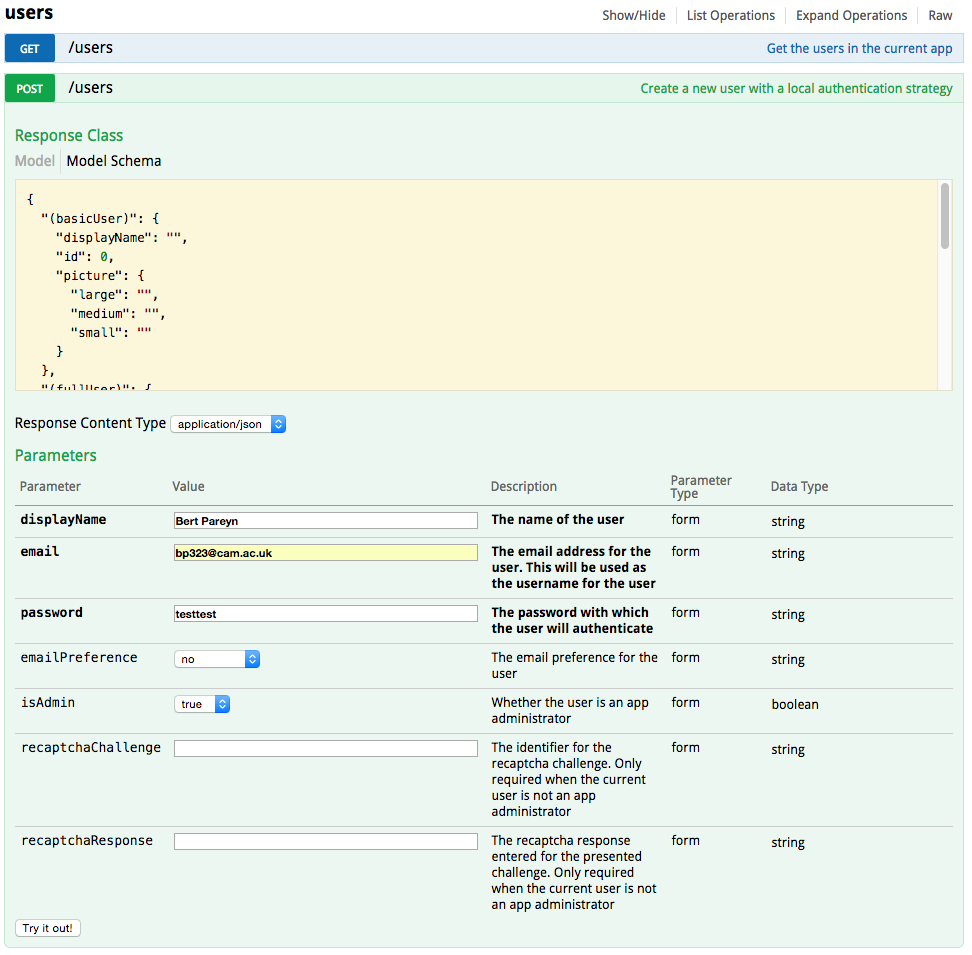-
Notifications
You must be signed in to change notification settings - Fork 3
Creating users
Creating users is key to get people started with Timetable. There are different types of users covered throughout this document. Users can be created through the global or admin administration UI and via the Swagger interface.
A global user is a user that has full control over all tenants, apps, users and their configuration. Global users are completely separate from tenant users and can only authenticate through local authentication. A global user that wants to use timetable as a consumer will need a separate account on an application.
A tenant user is a user that, by default, has no control over any of the configurable aspects of the tenant or app they are on and can not manage any users on that app. A tenant user can be promoted to a tenant administrator or only given access to certain parts they can edit.
Note that creating a user through the following 3 routes should not be done when authentication through Shibboleth is enabled as users will end up with a local account.
Log in to the global administration UI and navigate to Users using the left hand navigation.
Create an app user by opening up the tenant - app panel and filling in the new user fields at the bottom of the list.

Note: If you do not see these fields, local accounts might be disabled for the app. Navigate to
Configuration, open up thetenant - apppanel and enable local account creation.
Creating a user through the tenant UI is currently not supported.
Log in as an administrator on the tenant app and navigate to /docs in the browser. Go to Users and open up the section to POST to \users (it is conveniently labeled as Create a new user with a local authentication strategy). Fill in the fields and press Try it out!.
